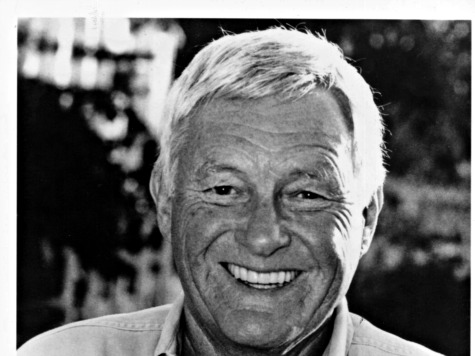American actor, author, and television personality Orson Bean graced the radio waves on Breitbart News Sunday and shared the story of his life and career from his early years as an 18-year-old American soldier in occupied Japan to the present day as a respected working actor in TV and theatre.
In a riveting two hour interview with Breitbart News Executive Chairman Stephen K. Bannon on Sirius XM Patriot Radio, Bean quipped that he feels the same way at 85 that he felt when he was 12—“Old… That’s a joke.” From the very beginning, the cultural icon explained, “I never thought that I couldn’t do what I set out to do. It wasn’t from arrogance; it was from ignorance.”
His life as an entertainer really began at the age of ten, when he was given a magic set, inspiring in him the notion that “I can be a magician.” He put his plan into action when he was in high school and began doing magic shows at the Moose Club in Northborough and other spots in Worcester, Massachusetts.
The clubs were rough, and audiences weren’t shy about expressing their disapproval, claimed Bean. “You stink,” was a common refrain, he claims. His opening line was: “Good Evening Ladies and Gentleman, I am Orson Bean, Harvard ’48’… (pause,) Yale nothing.”
Bean graduated high school in 1946 and enlisted in the Army. He was sent to Japan to relieve forces still there after the bombings at Hiroshima and Nagasaki, when the war ended. Although he didn’t witness the aftermath of those two cities, which had been devastated by nuclear bombs, he was able to see how Tokyo had been decimated by Allied forces firebombing at the end of the war.
Notably, Bean said that the U.S. soldiers in Japan were very happy to see the reinforcements come in and were anxious to get home. Bannon pointed out that this demonstrated that Americans were not so animated by the conquest of Japan, but rather that the war was over and they were anxious to get home and resume their lives in America.
As a kid, Bean said, as the war was being prosecuted, he was tuned in to the radio, and it intensified the drama that was being played on the world stage. The voices of Edward R. Murrow, Walter Winchell, and other broadcasters excited him and deepened his interest in media as a messenger.
Bannon asked Bean if it ever occurred to him that America would succumb to the forces of evil. “None, It never occurred to me that we would lose,” he said.
One of the differences between fighting a war then and fighting it now is “all of the media were behind it,” asserted Bean. “All of the media was… ‘of course we’re going to win.'” The raconteur claimed that the positive message put forth in the movies consoled him as a kid because they always had a happy-ever-after ending, which gave him confidence that life would work out.
Ultimately, Bean made it to NYC and performed in a well-received comedy act at the Blue Angel Club. Much to his pleasure, the audiences were laughing at his jokes, unlike his experience at the Moose club in Northborough. It was from here his acting career gained momentum, as he involved himself with the Actors Workshop and developed relationships with the likes of Marlon Brando, Dustin Hoffman, and others.
Bannon and Bean’s conversation ranged from the period of his being blacklisted in Hollywood, where Bean acknowledged that communism was a dominant force in the 50s, to his becoming a sensational stand-in for Jack Parr and Johnny Carson on the Tonight Show, doing 100 shows as a fill-in.
Perhaps Bean’s most uplifting story was that he had sought a 12-step group to help him when he was using alcohol too much at one point in his life. Bean recounted that he told someone at a meeting he didn’t believe in God, so he didn’t know how to reach out to a “higher power.” His friend told him to get down on his knees and “thank God for the day.” Bean asked, “but why do I have to get on my knees to pray?” The man answered “because He likes it.”
Orson started getting down on his knees and thanking God for the day, and his life began to change for the better. Through his reading of C.S. Lewis’ Mere Christianity and his continual prayer, “My life has gotten better and better and better and better.”

COMMENTS
Please let us know if you're having issues with commenting.